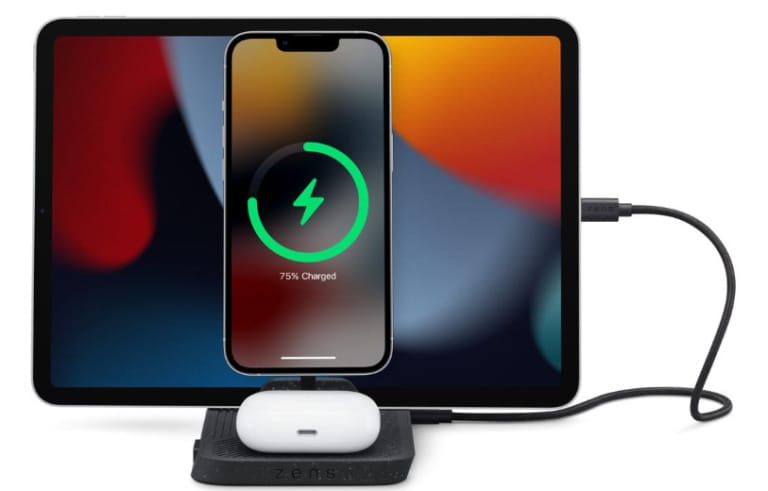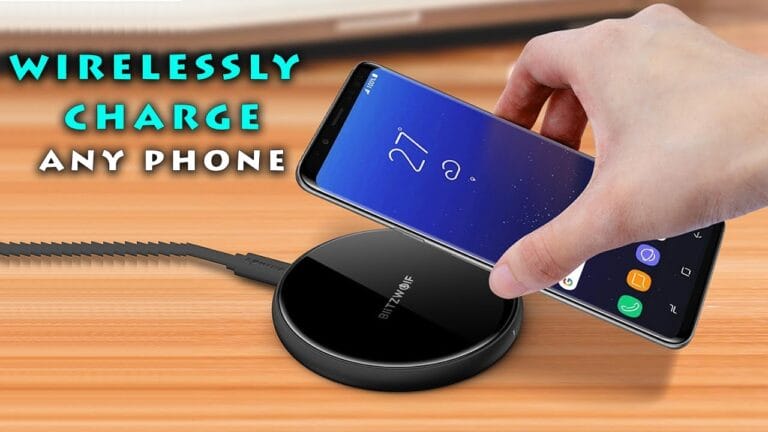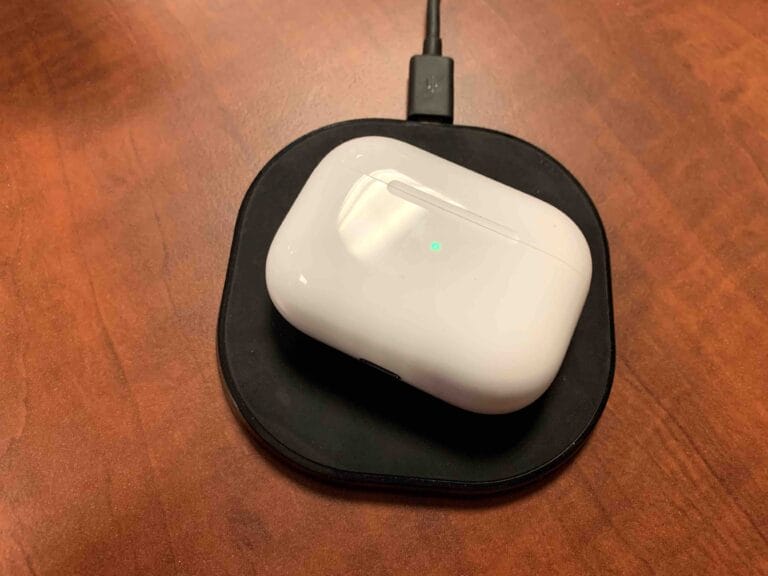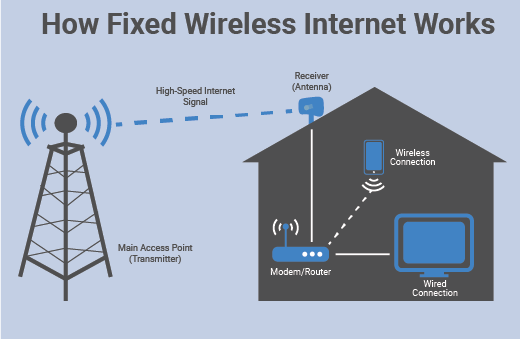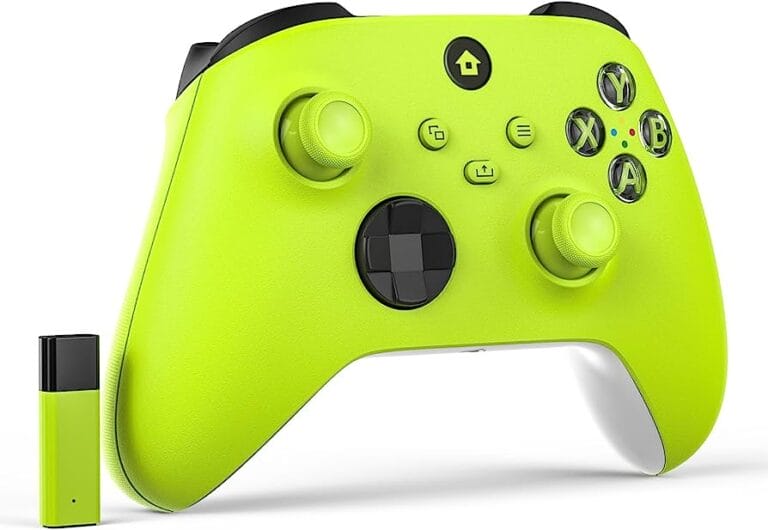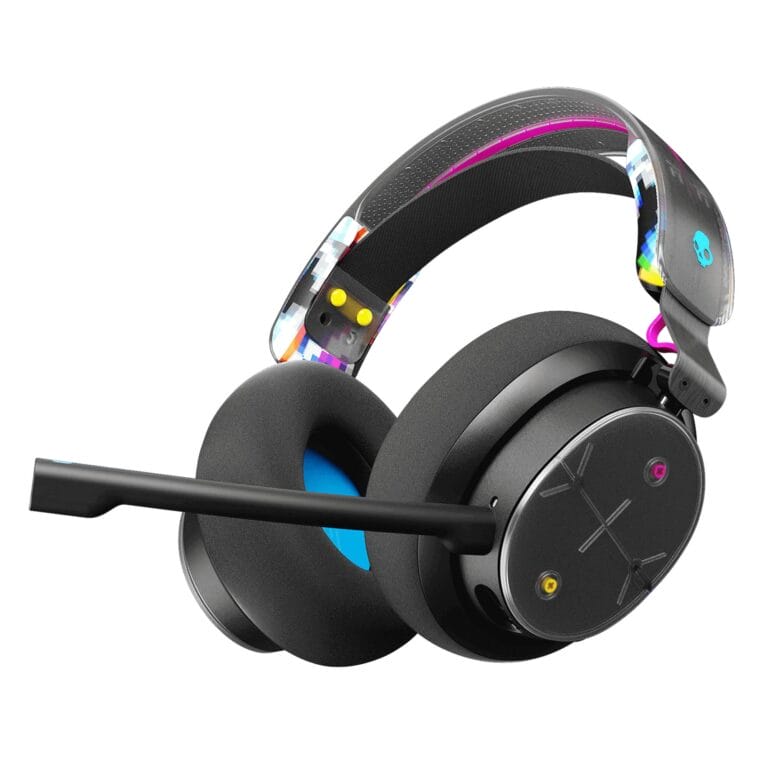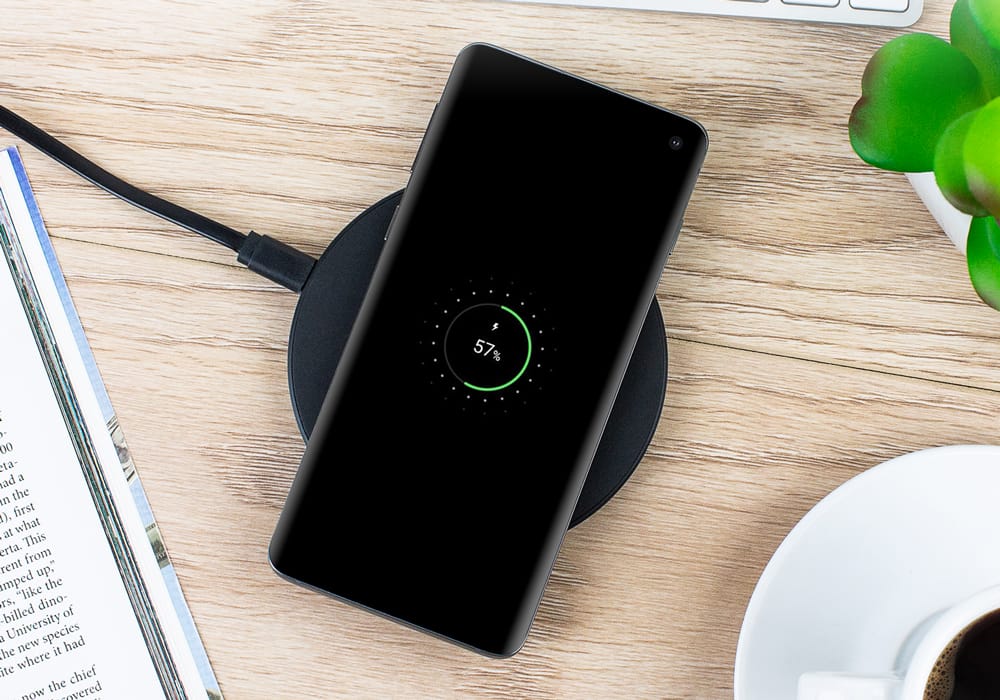
Do wireless chargers work on all phones? It’s a question that many people ask when considering whether to invest in this convenient charging option. You might be wondering if you can ditch the hassle of traditional charging cables and switch to the simplicity of wireless charging. Well, you’ve come to the right place to find out!
Wireless chargers have become increasingly popular in recent years, and for good reason. They offer a convenient and clutter-free way to charge your devices. No more fumbling with cables or worrying about frayed cords. Just place your phone on the charging pad, and let the magic happen. But before you dive headfirst into the world of wireless charging, let’s explore whether it works with all phones.
The short answer is, it depends. Not all phones are compatible with wireless chargers out of the box. While many newer smartphones come with wireless charging capabilities built-in, not all models have this feature.
Don’t worry, though! If your phone doesn’t support wireless charging, there are still options available to make your device compatible. Let’s take a closer look at how wireless charging works and what you can do to make it work for your phone.
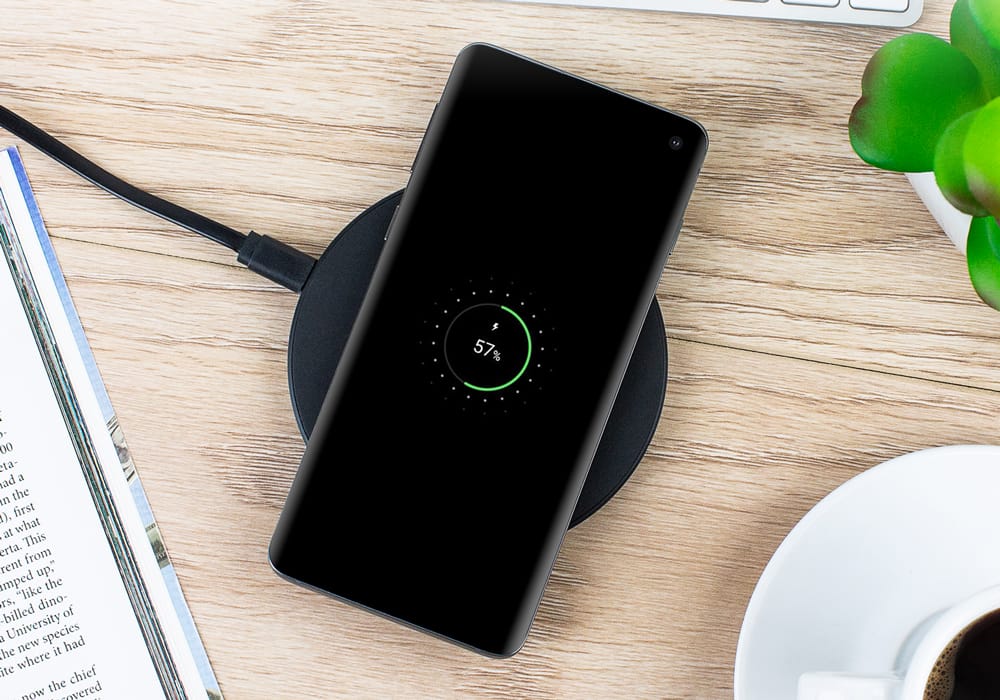
Do Wireless Chargers Work on All Phones?
Wireless chargers are compatible with most modern smartphones. Compatibility may vary depending on the phone model.
To ensure that your phone works with a wireless charger, check if it has Qi wireless charging technology. This is the most widely adopted standard for wireless charging.
If your phone supports Qi, it should work with any Qi-certified wireless charger. It’s always a good idea to verify compatibility before purchasing a wireless charger for your specific phone model.
How Do Wireless Chargers Work?
Wireless chargers utilize a technology called Qi (pronounced “chee”), which is the leading standard for wireless charging. Qi-enabled devices have a coil inside them that interacts with the charger’s coil through electromagnetic induction, creating a magnetic field.
This magnetic field transfers power from the charger to the device, allowing it to charge without the need for a physical connection.
While wireless charging technology has been around for some time, it isn’t yet available on all phones. The availability of wireless charging depends on the device’s hardware and whether or not it supports the Qi standard. Let’s delve deeper into the compatibility of wireless chargers with different phone brands and models.
Compatibility with Apple iPhones
Apple embraced wireless charging starting with the iPhone 8 and iPhone X models released in 2017. Since then, all of Apple’s iPhone models from the iPhone 8 and later have been equipped with Qi technology, making them compatible with most wireless chargers available on the market.
This includes popular models like the iPhone 11, iPhone SE, and iPhone 12 series. Apple also introduced its wireless charging pad called the MagSafe Charger, which provides a more magnetic and secure connection for iPhones.
It’s important to note that not all wireless chargers are created equal. Some wireless chargers may have limitations when it comes to charging iPhones, such as slower charging speeds. When choosing a wireless charger for your iPhone, it’s best to look for one that is specifically certified as “Made for iPhone” to ensure optimal compatibility and performance.
Compatibility with Android Phones
Android phones offer a wider range of options when it comes to wireless charging compatibility. Many flagship Android devices, such as Samsung Galaxy, Google Pixel, and LG models, include Qi wireless charging as a standard feature. This means that you can use any Qi-compatible charger to recharge these devices.
However, it’s worth noting that some lower-end or budget Android phones may not support wireless charging. This is because manufacturers may choose to omit the necessary components to keep costs down. Before purchasing a wireless charger for your Android phone, it’s essential to check if your device is Qi-enabled.
Compatibility with Other Phone Brands
Aside from Apple and Android, several other phone brands also offer wireless charging compatibility. These include but are not limited to, Sony Xperia, Huawei, Motorola, and Nokia.
Like Android phones, it’s crucial to verify if your specific model supports Qi technology before investing in a wireless charger.
Additionally, some phone brands may have their own proprietary wireless charging standards. For example, Samsung introduced Fast Charge for their Galaxy devices, allowing for faster wireless charging speeds. These proprietary standards may require specific chargers that are compatible with the brand’s technology.
Benefits of Wireless Charging
Wireless chargers offer several benefits compared to traditional wired chargers. Firstly, they eliminate the need for cables, reducing clutter and making charging more convenient.
Wireless chargers are often compatible with multiple devices, meaning you can charge different phones or other Qi-enabled devices using the same charger. This versatility can be particularly handy when charging devices in households with multiple phone brands.
Moreover, wireless chargers support fast charging capabilities, allowing you to charge your phone quickly and efficiently. They also reduce wear and tear on charging ports, as there is no physical connection required. This can enhance the longevity of your device’s charging port and reduce the need for repairs or replacements.
Tips for Using Wireless Chargers
To ensure optimal performance and compatibility when using wireless chargers, here are a few tips to keep in mind:
- Remove thick phone cases or metal objects that may interfere with the charging process.
- Ensure that your device is properly aligned with the charger’s coil to establish a strong connection.
- Consider investing in a wireless charger that supports fast charging if you want to recharge your phone quickly.
- Always use a reputable and certified wireless charger to prevent any potential damage to your device.
- Keep in mind that wireless chargers may generate some heat during the charging process, which is normal. However, avoid using your phone while it’s on the charger to prevent overheating.
Future of Wireless Charging
As technology continues to advance, wireless charging is likely to become even more widespread and accessible. Manufacturers are constantly working on improving charging speeds, compatibility, and overall user experience.
There are also developments in long-range wireless charging, which would enable charging devices without the need for direct contact with a charging pad. The future looks promising for wireless chargers, and we can expect to see even more devices adopting this convenient technology in the coming years.
Frequently Asked Questions
Wireless chargers have become increasingly popular as a convenient way to charge our devices. But do they work on all phones? Let’s find out!
1. How do wireless chargers work?
Wireless chargers work by transferring energy from the charger to your phone without the need for a physical connection. They use a technology called electromagnetic induction, where a coil in the charger generates an electromagnetic field. This field then induces an electrical current in a coil located inside your phone. This current is converted into usable power to charge your device.
It’s important to note that not all phones come with built-in wireless charging capabilities. Some devices require a separate wireless charging receiver or a compatible phone case to enable wireless charging.
2. Will a wireless charger work on my phone?
Whether a wireless charger will work on your phone depends on two factors: the phone’s hardware compatibility and the charger’s compatibility.
Firstly, your phone needs to have built-in wireless charging capabilities or be compatible with wireless charging accessories. You can check your phone’s specifications or consult the manufacturer’s website to determine if it supports wireless charging.
Secondly, the wireless charger you use must be compatible with your phone’s wireless charging standard. There are different wireless charging standards, such as Qi and PMA. It’s crucial to ensure that your phone and charger support the same standard to ensure compatibility.
3. Are all wireless chargers the same?
No, wireless chargers are not all the same. While they work on the same principle of wireless power transfer, there are different wireless charging standards and technologies used. The most common standard is Qi, which is widely supported by many phone manufacturers.
However, the charging speed may vary depending on the charger and its power output. Some chargers may support fast charging, while others may have a slower charging speed.
It’s important to choose a wireless charger that is compatible with your phone’s wireless charging standard and offers the charging speed you desire.
4. Can I use a wireless charger with a phone case?
Yes, you can use a wireless charger with a phone case, but it depends on the thickness and material of the case. Wireless charging works best when there is direct contact between the charger and the phone. Thick or metal cases can interfere with the wireless charging process and may prevent it from working effectively.
To ensure compatibility, opt for phone cases that are specifically designed for wireless charging or have a cutout at the charging coil area. Additionally, remove any metal objects or credit cards from the back of your phone while using a wireless charger, as they can interfere with the charging process.
5. Can wireless chargers damage my phone’s battery?
No, wireless chargers do not damage your phone’s battery when used correctly. In fact, they can be safer for your device compared to traditional wired chargers. Wireless chargers are designed to regulate the charging process and prevent overcharging, overheating, and other potential issues.
However, keep in mind that using a wireless charger with a case that contains a magnetic strip or any other foreign object may cause unnecessary heat generation, which can impact your phone’s battery life. It’s always important to use compatible and properly designed accessories to ensure the longevity of your phone’s battery.
Wireless chargers are convenient, but not all phones can use them. Some phones are not compatible because they lack the necessary technology. Wireless charging works through a process called electromagnetic induction, where energy is transferred from the charger to the phone.
However, not all phones have the required components to receive this energy. If your phone supports wireless charging, make sure to check if the charger you want to buy is compatible with it. Otherwise, you’ll need to stick to traditional wired charging methods.

